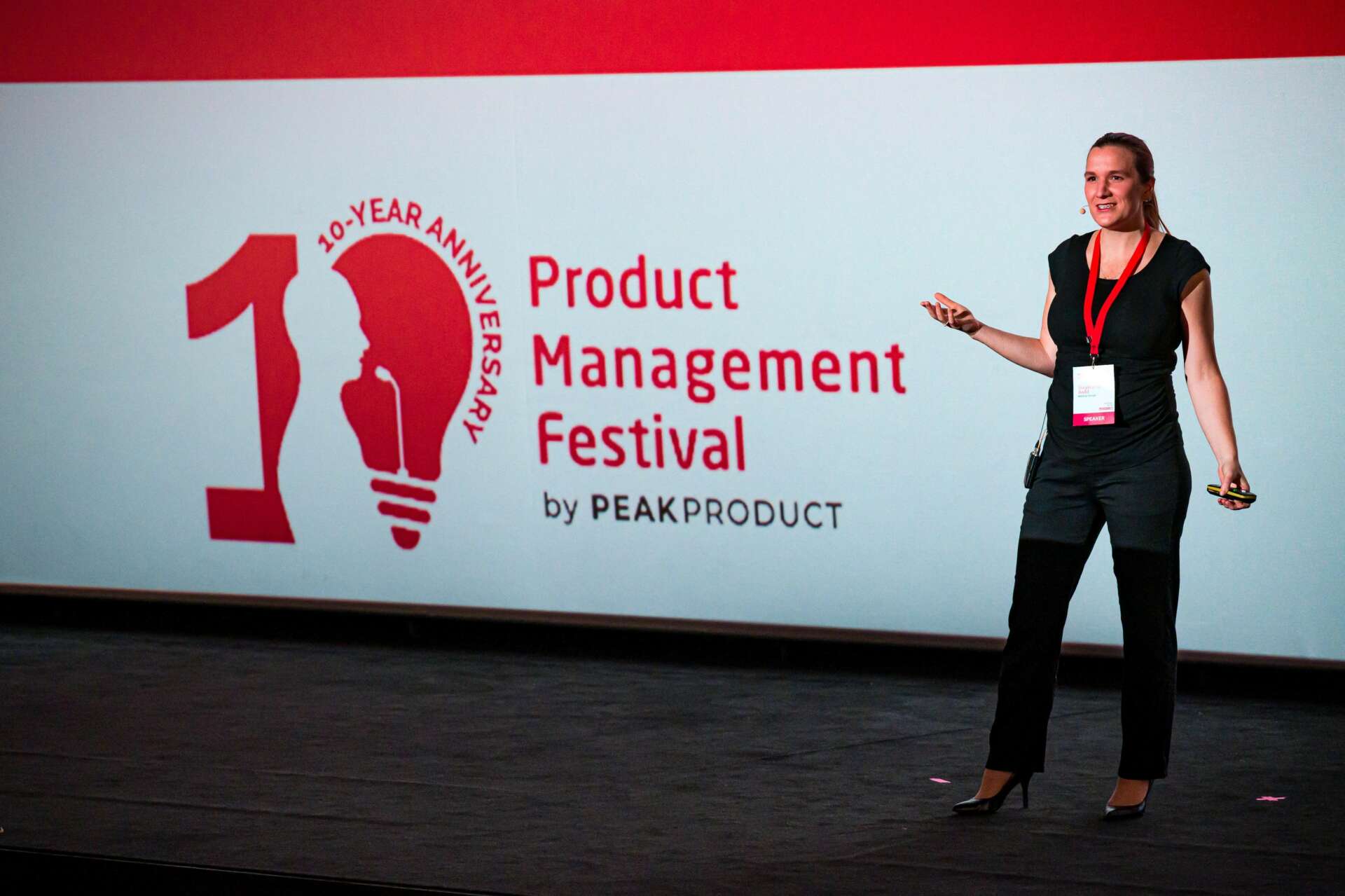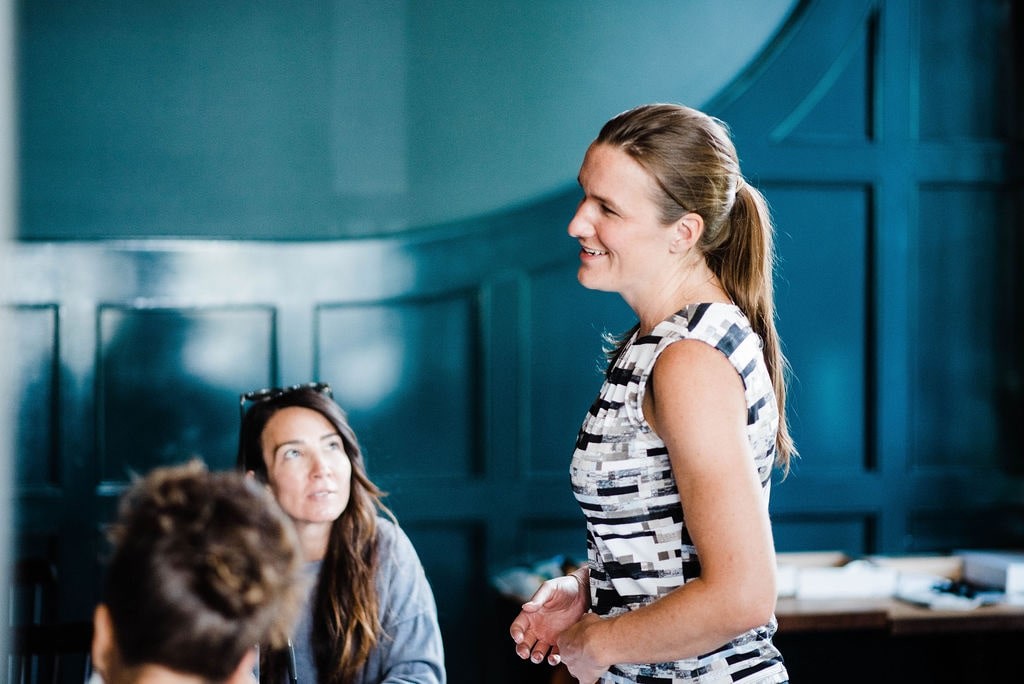We’re excited to introduce you to the always interesting and insightful Stephanie Judd. We hope you’ll enjoy our conversation with Stephanie below.
Stephanie, thanks for taking the time to share your stories with us today Owning a business isn’t always glamorous and so most business owners we’ve connected with have shared that on tough days they sometimes wonder what it would have been like to have just had a regular job instead of all the responsibility of running a business. Have you ever felt that way?
I love this question. As someone who wants to live an intentional life, and not let inertia decide what happens to me, I ask this question to myself often. It becomes particularly relevant, of course, when we experience a setback in the business.
The COVID pandemic hit us about three months before I learned I was pregnant with my first kiddo. Kara, my business partner, and I were scrambling to innovate and pivot within the business. At home, I was talking to my husband about the myriad options that would be available to our son if we traded the meaningfulness of business ownership (he’s an entrepreneur too) for increased financial stability. In the midst of that, a friend of mine called to tell me that a position was opening up on his team and he thought I’d be a great fit.
Right away, I called Kara. I was curious to explore this job opportunity, but wanted her blessing. The fact that I called her first, and the fact that she gave me her blessing should have been indication enough that I was exactly where I belonged, but I pursued the job nonetheless.
The recruiting process had several rounds of interviews. After my first series, my friend on the team called me and said, “You did really well! People liked you, but there’s concern that you’re not fully committed to leaving your company.” Even though I had prepared a solid argument to address exactly that concern, apparently I hadn’t been convincing enough. I prepared a tighter, more cogent answer for my second round of interviews. But again, I got the feedback, “The team really likes you. But are you sure you want this job?”
I think the team could see parts of me that I couldn’t see. In the end, they were right. I didn’t take the job. Even though the package was incredible and the job seemed pretty amazing, I just wasn’t ready to give up on what has been the most meaningful project of my life.
Am I happier as a business owner? I don’t know. Do I find an incredible amount of fulfillment and purpose as a business owner? Absolutely.



Stephanie, love having you share your insights with us. Before we ask you more questions, maybe you can take a moment to introduce yourself to our readers who might have missed our earlier conversations?
Many years ago, Kara, my roommate and colleague, came back from a business trip and exclaimed, “You will NOT believe what happened!” She proceeded to tell me a story about how she had already arrived at the airport on her way out of town before she realized she’d left her laptop behind. In her panic, she decided it was a good idea to call her project partner, Jim, and ask him to grab the laptop for her on his way to the airport for a later flight. A few key details: that partner would have to make a 45-minute detour and break into our house to do that, and oh…by the way, he was the CEO of our company.
Now, it was incredible that Jim said yes without hesitation. It was incredible that he followed through and delivered her laptop to her at the client site hours later. But what was most incredible to me was the fact that somewhere along the way he’d managed to build a relationship with Kara that made her feel comfortable even asking in the first place. Jim was an incredibly inspirational leader who made us all feel safe in our blunders, and seen for our authentic selves. When Kara and I eventually decided to launch Wolf & Heron together, Jim’s style of leadership was a huge part of our inspiration. We wanted to help people be more like Jim.
Wolf & Heron is a leadership development firm that leverages expertise in social psychology, influence, and facilitation to develop leaders who can effectively engage and inspire others.
We’re most known for our Influential Storytelling program, which empowers professionals to use stories as a way to engage and inspire others. But over the years, we’ve been able to expand our offerings into other areas where being inspirational matters. We’ve helped several clients put together a high-quality conference both by applying our storytelling expertise to the macro-level conference arc, and by coaching individual speakers to be more effective presenters. We’ve developed a series of workshops designed to address the challenge of long, boring, unnecessary meetings that seem to plague the workplace; good meeting design and facilitation chops can work wonders on workplace meeting culture. And we’ve even designed a fun card deck that helps managers have more meaningful touchpoints with their employees.
Because we focus our leadership development on the tools and skills that will engage and inspire others, we are intentional about showcasing those same tools and skills in our program design and in the way we work with our clients. I like to think it’s this “meta-awareness” that sets us apart from other leadership development organizations. My favorite testimonial after an engagement is usually something along the lines of, “Wow! Not only did I learn something, but it was so fun and the time just flew by!”



Any advice for growing your clientele? What’s been most effective for you?
Our strategy for growing our clientele is twofold. The first is to do darn good work for the clients we already have. They are our most important source of credibility and on top of that, seeing is believing when it comes to great workshops or experiences. We landed some great brands—like Google, Delta, and the University of Michigan—and built great relationships with them, and now that we can have them vouch for us to new prospects, it’s been a real game changer.
The other piece of the puzzle for us has been about being laser-focused in grabbing the attention of new prospects when they’re specifically looking for training in the topics that we teach. Storytelling, coaching, and other skills that engage and inspire are almost always “discretionary spending” for our clients. That means that without an existing relationship, it can be difficult to convince a buyer to spend money in these areas when their priorities are elsewhere. But if they’re already out there googling around for training on these topics, we have an amazing team of AdWords, SEO, and Public Relations specialists that make sure those folks find us and book an initial call. Then, wonderfully, we’re usually exactly what they need to solve their problem.
How do you keep your team’s morale high?
This question feels so meta to me because this is literally what we teach in our training programs. At our core, we aim to develop leaders who can effectively engage and inspire others. Now that I’ve been in business for almost a decade, and spoken to thousands of leaders across a wide variety of industries, I think the most powerful and fundamental thing we can ALL do to better engage and inspire the people in our lives is to ask more open questions, listen more deeply, and stop offering solutions or advice.
Haley came to a coaching session with me looking to process an interaction she’d had with her manager. This is what she told me:
“I know a manager theoretically wants to bring out the best in their people, so I thought maybe I should help Abby, my manager, understand what brings out the best in me. I was super nervous to tell her. But, I pepped myself up and went to our one-on-one. During our conversation, I was annoyed that I couldn’t get my voice to be steady, but I charged ahead and said to her, ‘I know you want to bring out the best in me. I tend to respond to positive reinforcement and encouragement rather than criticism. I think if you were open to trying that approach with me, we might get closer to finding our groove.’ Abby’s response was ‘Why is this feedback only coming to me now? We’ve been working together for almost a year.’”
When Haley told me about this exchange, I immediately understood. Abby’s reaction to Haley’s feedback was reactive and defensive–self-protective. Instead of listening, she shot back a leading question designed to point out a misstep on Haley’s part. She could have instead noticed Haley’s shaky voice and said something like, “That must have been hard for you to say to me. Thank you for your courage.” She could have said, “So you respond to positive reinforcement and encouragement. Give me an example of what that might look like.” She could have asked an open-ended question like, “From where you sit, what is it you think you do well?”
Abby wasn’t listening to Haley. She was reacting. She wasn’t focused on holding space for Haley. She was protecting her own space. Now, I know that Abby’s response was very human; it’s natural to want to protect yourself when you feel attacked. But so much of being a great leader is managing yourself, especially in moments where you feel vulnerable so that you can be a safe space for your employees’ vulnerability. Focusing, instead, on how Haley was feeling (nervous, unappreciated, unrecognized), would have made for a much more productive, meaningful, and connected manager/employee interaction, and prevented Haley from ultimately looking for another job.
Contact Info:
- Website: https://www.wolfandheron.com/
- Instagram: https://www.instagram.com/wolfandheron_leadership/
- Facebook: https://facebook.com/wolfandheron
- Linkedin: https://www.linkedin.com/company/wolfandheron/


